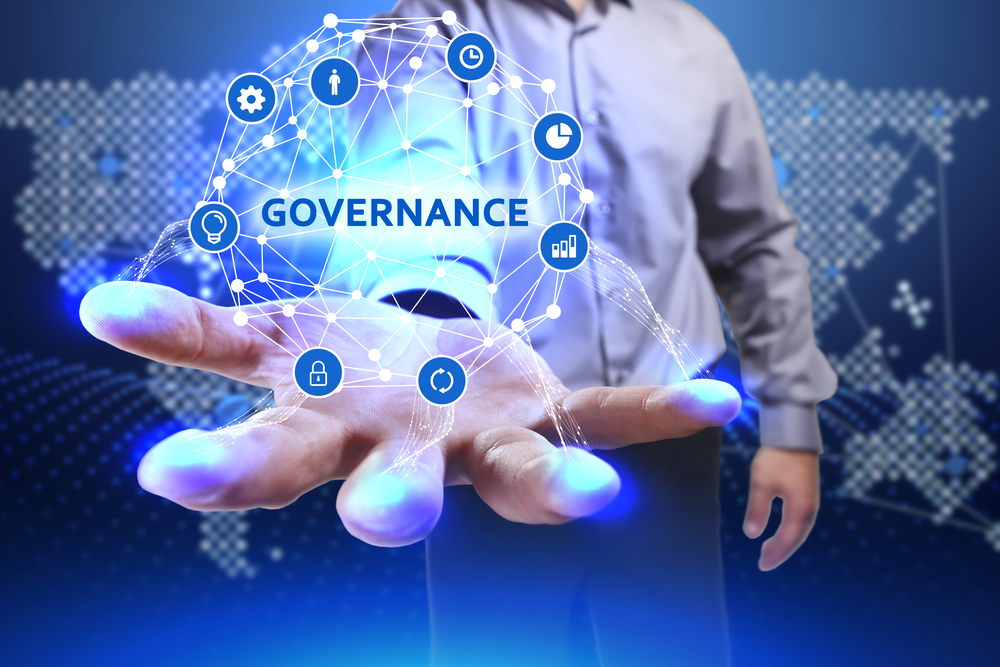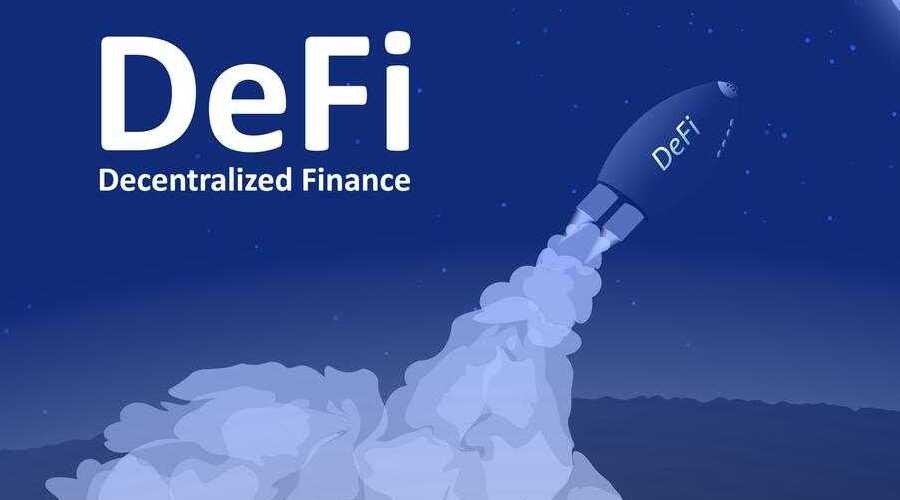

In the rapidly evolving landscape of the financial world, decentralized finance (DeFi) has emerged as a revolutionary concept. DeFi refers to the use of blockchain technology and smart contracts to build financial applications that eliminate intermediaries and provide greater financial inclusivity. However, the true potential of DeFi can only be realized through effective decentralized governance. This article delves into the importance of decentralized governance in empowering the potential of DeFi.
Decentralized Governance
Principles of Decentralized Governance
Decentralized governance revolves around the idea of community-driven decision-making. It enables participants within a network to have a say in the direction, development, and decision-making processes of a DeFi project. Some key principles of decentralized governance include transparency, inclusivity, and consensus-driven decision-making.
Benefits of Decentralized Governance
- Increased Security: Decentralized governance distributes decision-making power among participants, reducing the risk of a single point of failure or malicious actions. This enhances the security of DeFi protocols, making them more robust against attacks and vulnerabilities.
- Transparent and Accountable: Decentralized governance promotes transparency by allowing participants to monitor and scrutinize decision-making processes. The open nature of blockchain technology ensures that all transactions and actions are recorded and visible to the public, increasing accountability and reducing the potential for corruption.
- Community Ownership: Decentralized governance empowers the community by giving participants a voice in shaping the future of DeFi projects. Token holders can propose and vote on changes, ensuring that the interests of the community are represented. This fosters a sense of ownership, alignment, and shared responsibility.
- Efficient Decision-Making: Decentralized governance enables faster decision-making compared to traditional centralized models. With on-chain voting mechanisms, participants can quickly reach a consensus on critical matters, allowing for timely updates, improvements, and adaptations to changing market conditions.
- Innovation and Adaptability: Decentralized governance encourages diverse perspectives and ideas to contribute to the development of DeFi protocols. This promotes innovation by allowing for experimentation, creativity, and the incorporation of novel features and functionalities. It also facilitates the rapid adoption of new technologies and best practices.
Challenges
While decentralized governance brings numerous advantages, it also presents challenges. One major challenge is achieving effective consensus among network participants with varying interests. However, various voting mechanisms, such as token-weighted voting and quadratic voting, can be implemented to address this challenge. Another challenge is ensuring the security and integrity of decision-making processes, which can be mitigated through rigorous auditing and transparency measures.
- Consensus among Diverse Participants: Achieving consensus among participants with varying interests and incentives can be challenging. Different stakeholders may have different perspectives on decision-making, making it difficult to reach agreement.
- Security and Integrity: Ensuring the security and integrity of decision-making processes is crucial. Without proper mechanisms in place, malicious actors could manipulate the voting system or launch attacks to undermine the governance process.
- Complexity and Learning Curve: Decentralized governance systems can be complex, especially for newcomers. Understanding the governance mechanisms, voting procedures, and the implications of different proposals may require a certain level of technical knowledge.
Solutions
- Voting Mechanisms: Implementing robust and inclusive voting mechanisms can help address consensus challenges. Token-weighted voting, quadratic voting, and delegated voting systems are some approaches that can ensure fair representation of participants’ interests.
- Transparency and Auditing: Emphasizing transparency in decision-making processes can enhance trust and integrity. Publicly recording and publishing governance-related actions, proposals, and voting results can allow for scrutiny and auditing by the community.
- Education and Community Engagement: Educating participants about the governance system and its implications is vital. Providing comprehensive documentation, tutorials, and engaging the community through forums, discussions, and AMA sessions can help increase understanding and involvement.
- Security Audits: Conducting regular security audits by independent third parties can identify vulnerabilities and enhance the security of the governance infrastructure. Audits should cover smart contracts, voting mechanisms, and any other components critical to the governance process.


DeFi encompasses a broad range of financial applications built on blockchain networks. These applications include decentralized exchanges (DEXs), lending platforms, stablecoins, and more. DeFi aims to provide transparent, permissionless, and accessible financial services to users worldwide, without the need for intermediaries.
Key Features of DeFi
- Open-Source Protocols: DeFi projects are built on open-source protocols, which means that the underlying code is publicly accessible and auditable. This fosters transparency and allows developers to contribute to the improvement and security of the protocols.
- Interoperability: DeFi aims to create a seamless and interconnected financial ecosystem. Interoperability enables different DeFi applications and protocols to communicate and interact with each other, allowing for the seamless transfer of assets and liquidity.
- Programmable Smart Contracts: DeFi leverages smart contracts, which are self-executing agreements with predefined conditions. Smart contracts automate processes, such as lending, borrowing, and trading, eliminating the need for intermediaries and enabling trustless transactions.
- Non-Custodial Services: DeFi emphasizes the concept of self-custody, where users have full control over their assets. Non-custodial services allow users to manage their funds directly without relying on centralized entities, providing greater security and eliminating counterparty risk.
- Decentralized Exchanges (DEXs): DEXs are a fundamental component of DeFi. These platforms facilitate peer-to-peer trading of cryptocurrencies without the need for intermediaries. DEXs provide liquidity through automated market-making algorithms, enabling users to trade assets directly from their wallets.
- Lending and Borrowing Platforms: DeFi offers lending and borrowing platforms where users can lend their assets to earn interest or borrow assets by collateralizing their existing holdings. These platforms use smart contracts to automate lending processes and set interest rates based on supply and demand.
Role of Governance in DeFi
- Decision-Making: Governance empowers token holders and participants to make decisions collectively. Through voting mechanisms, token holders can propose and vote on changes, upgrades, and other important matters related to the protocol’s governance. This decentralized decision-making process ensures that the interests and perspectives of the community are represented.
- Protocol Upgrades and Improvements: Governance facilitates the implementation of protocol upgrades and improvements. It enables the community to suggest and approve changes that enhance the functionality, security, and efficiency of the DeFi protocols. This ensures that the protocols can adapt to emerging challenges, incorporate new features, and address issues promptly.
- Governance Token Holders: Governance tokens play a crucial role in the governance process. Token holders are granted voting rights and can actively participate in decision-making. The number of tokens held by an individual often determines the weight of their vote, aligning decision-making power with the level of token ownership.
- Incentivization and Staking: Governance mechanisms often incorporate incentive structures to encourage participation and engagement. Staking governance tokens can provide rewards, such as additional tokens or governance rights, motivating token holders to actively contribute to the governance process. This incentivization helps ensure a robust and engaged community.
- Transparency and Accountability: Governance in DeFi promotes transparency by making governance-related actions, proposals, and voting results publicly visible. This transparency fosters accountability, as participants can scrutinize the decision-making process and hold governance contributors responsible for their actions. Public scrutiny helps maintain the integrity and fairness of the governance system.
- Governance Frameworks: DeFi projects often establish governance frameworks that outline the rules, processes, and procedures for decision-making. These frameworks may include voting periods, proposal submission guidelines, and governance token distribution mechanisms. Well-defined governance frameworks provide clarity and promote efficient decision-making.
Case Studies
Governance in Decentralized Exchanges
Decentralized exchanges (DEXs) like Uniswap and SushiSwap have embraced decentralized governance models. Token holders are empowered to propose and vote on protocol changes, creating a truly decentralized ecosystem where the community has a say in the development and evolution of the platform.
Governance in Lending Platforms
Lending platforms such as Compound and Aave also implement decentralized governance mechanisms. Users who hold governance tokens can participate in shaping the lending protocols, determining interest rates, collateral factors, and introducing new assets to the lending pools.
Governance in Decentralized Autonomous Organizations (DAOs)
Decentralized Autonomous Organizations (DAOs) are entities governed by code and controlled by their community. DAOs like MakerDAO and Aragon utilize decentralized governance to make decisions collectively. Token holders can vote on proposals, budget allocation, and the overall direction of the organization.
Best Practices
Key Considerations for Effective Decentralized Governance
To ensure effective decentralized governance, certain considerations are crucial. These include clear governance structures, transparent decision-making processes, active community engagement, incentivization mechanisms, and continuous improvement through learning from past experiences.
Examples of Successful Decentralized Governance Models
The Ethereum community’s governance model, with its EIP (Ethereum Improvement Proposal) process and decentralized decision-making, has proven successful. Additionally, projects like Compound and Yearn. finance have demonstrated effective decentralized governance by actively involving their communities in decision-making processes.
Conclusion
Decentralized governance is the key to unlocking the full potential of DeFi. By involving the community in decision-making, DeFi projects can foster innovation, enhance security, and ensure the inclusivity of the financial ecosystem. Embracing the principles of decentralized governance will drive the continued growth and evolution of DeFi.
FAQs
1. How does decentralized governance differ from traditional governance?
Decentralized governance involves community-driven decision-making, whereas traditional governance typically relies on centralized authorities. Decentralized governance empowers individual participants and fosters inclusivity.
2. Can decentralized governance eliminate the risk of fraud in DeFi?
While decentralized governance can enhance security, it cannot entirely eliminate the risk of fraud. However, transparency, auditing, and community participation can help mitigate fraudulent activities.
3. What role do governance tokens play in decentralized governance?
Governance tokens grant holders the right to participate in decision-making processes. They allow token holders to vote on proposals, protocol upgrades, and other important matters related to the project’s governance.
4. How can decentralized governance improve financial inclusivity?
Decentralized governance ensures that decision-making power is distributed among participants, reducing the concentration of power in the hands of a few. This fosters inclusivity and allows diverse perspectives to shape financial services.
5. What are the future prospects of decentralized governance in DeFi?
Decentralized governance is expected to play a crucial role in the future of DeFi. As the ecosystem evolves, governance mechanisms will continue to improve, empowering users and driving innovation.


I have been featured in numerous publications, both online and offline, and am a regular speaker at industry events. I am also the founder of Crypto University, an online educational platform that helps people learn about cryptocurrencies and blockchain technology. In addition to my writing and teaching career, I am also an active investor in the cryptocurrency space. I have made investments in some of the leading projects in the space, and my portfolio has outperformed the market by a wide margin.
